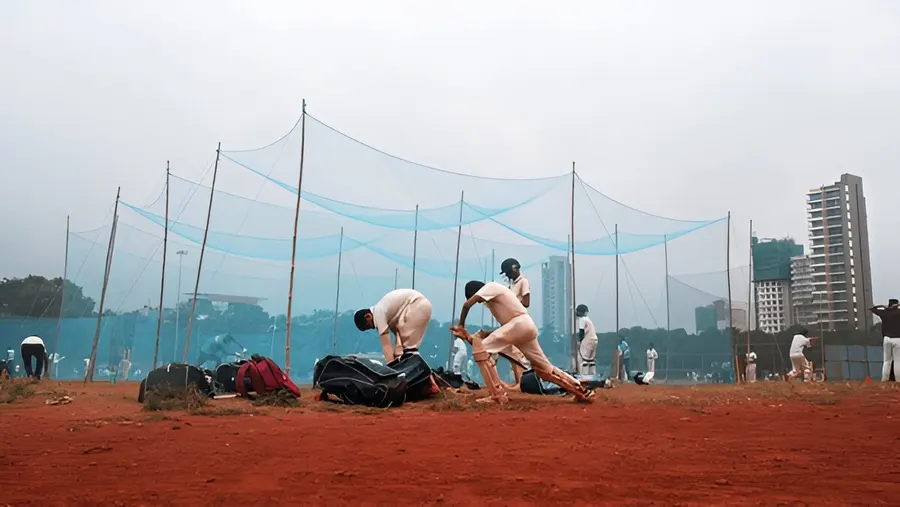Introduction: Beyond the Boundary Line
A team is successful for what? Obviously, raw skill. Every winning team, though, has a mentor - someone who sees what others overlook. Regarding Indian cricket, that mentor is usually the coach. Someone who shapes destinies from the sidelines but does not bat or bowl. The national cricket team of India has seen its fair share of both acclaimed and dubious coaching gurus. Still, each contributed to write India's cricketing narrative. Let's delve deeply today into the coaches of Indian cricket, the unsung heroes of the game. Coaching Staff of Indian National Cricket Team (2024)
Present Coaching Staff of the Indian National Cricket Team (2025)
Every winning team has a crew of strategic geniuses working nonstop off the court. India's cricket team is evolving not just in its players but also in the leadership backing them by 2025. The Indian cricket scene is opening a new, audacious chapter with Gautam Gambhir filling in as the Head Coach and Morne Morkel handling the fast-bowling division .
Gautam Gambhir - Head Coach (2025 - Present)
"You don't play for the crowd; you play for the country."
- Gautam Gambhir
From the gritty streets of Delhi to the dizzying heights of World Cup glory, Gautam Gambhir has always worn his patriotism like a badge of honor. Now, as India's head coach, his mission is simple: win with intensity, play with intent, and build with integrity .
- Coaching Style: Gambhir brings a no-nonsense, results-driven approach. He emphasizes discipline, mental strength, and strategic aggression - something sorely needed in crunch matches.
- Focus Areas:
- Developing match-winners for all formats.
- Bridging the gap between IPL success and international consistency.
- Instilling self-belief in younger players through mentorship.
"Gambhir's fearless attitude as a player is now echoing in his coaching philosophy - aggressive yet composed, demanding yet fair."
Interesting Fact:
After retiring, Gambhir is the first Indian to record back-to-back double century in first-class cricket, therefore demonstrating his continuous cricketing genius even beyond retirement.
ALSO READ : Unbreakable Bonds: Highest Partnerships in Test & ODI Cricket History
Morne Morkel - Fast Bowling Coach
Ideal for coaching the Indian pacers would be one man who terrified hitters with speed and bounce. Apart from increased awareness of subcontinent surfaces and player psychology, the towering South African spearhead Morne Morkel joined India's coaching team in 2024 carries with him international expertise.
What He Provides:
- Customized seamers' training courses based on match circumstances.
- Analysis of line, length, and wrist position driven by data.
- Mental coaching to increase under pressure performance.
Morkel believes in silently delivering loudly. He has been instrumental in guiding India's young speedsters - Yash Dayal, Arshdeep Singh, and Umran Malik - in developing their talents.
Support Staff Highlights (2025):
Role | Name | Contribution |
Batting Coach | Vikram Rathour | Focuses on stability, temperament, and technique |
Spin Bowling Consultant | Ramesh Powar | Works with spinners on variation and flight |
Fielding Coach | T. Dilip | Sharpens reflexes and ground fielding agility |
Mental Conditioning Coach | Paddy Upton | Helps players cope with pressure and mental fatigue |
Physiotherapist | Nitin Patel | Manages injuries and player recovery protocols |
Strength & Conditioning | Nick Webb | Builds endurance and match fitness |
What This Means for Indian Cricket
This new coaching group redraws rather than merely meets the criteria. India is not just creating a team for now but also a legacy for tomorrow because to Gambhir's strong nationalism, Morkel's technical genius, and a well chosen support crew.
Note : The strategic change of the BCCI toward younger, experience-based coaches indicates that India is being ready not only for competition but also for world cricket dominance over the next ten years.
Did You Know?
Gautam Gambhir is the only cricketer who top-scored for India in two World Cup finals - 2007 T20 and 2011 ODI.

As of 2024, the Indian national cricket team coaching setup is a well-oiled machine. Here's a look at the current team guiding the Men in Blue:
Position | Name | Background |
Head Coach | Rahul Dravid | Former India captain, legendary batsman |
Batting Coach | Vikram Rathour | Former opener with solid domestic track record |
Bowling Coach | Paras Mhambrey | Former pace bowler, known for nurturing young talent |
Fielding Coach | T. Dilip | Specialist in fielding drills and agility training |
Mental Conditioning Coach | Paddy Upton | Expert in sports psychology and team dynamics |
Team Analyst | Hari Prasad Mohan | Data-driven strategist with global experience |
Everything is done by this varied and energetic group, from player mental wellness to talent honing. They are strategists, motivators, occasionally therapists, not only trainers.
History of Indian Cricket Team Coaches (Since 1971)
India didn't always have a structured coaching system. The first official coach, Keki Tarapore, was appointed in 1971 for a tour to the West Indies. Since then, India has seen a parade of coaches, each with a unique philosophy:
- Ajit Wadekar (1992-96) : One of the earliest full-time appointments.
- John Wright (2000-2005) : The first foreign coach, brought professionalism.
- Greg Chappell (2005-07) : Controversial reign, known for clashes with players.
- Gary Kirsten (2008-2011) : Brought calm and focus, culminating in the 2011 World Cup win.
- Ravi Shastri (2017-2021) : Encouraged aggression and fitness.
Each of these figures shaped India's cricketing ethos in their own way. Some were teachers. Some were tacticians. All were trailblazers.
Famous Indian Cricket Team Coaches and Their Legacies
Let's pause and talk legacy. Because in sports, legacy matters.
"Gary Kirsten: The Mastermind Behind 2011 Glory"
Quiet. Calculated. Composed. Gary Kirsten was never loud, but his impact echoed through the Wankhede as Dhoni lifted the trophy in 2011. He fostered unity, emphasized mental strength, and allowed players to thrive.
"Ravi Shastri: The Motivator-In-Chief"
With a booming voice and larger-than-life personality, Shastri gave the team swagger. Under him, India won historic Test matches overseas, including a 2-1 series win in Australia in 2020-21.
"John Wright: The Foreign Pioneer"
The first non-Indian coach, Wright brought discipline and systems that laid the foundation for India's modern era.
"Rahul Dravid: The Wall Behind the Team"
Now the head coach, Dravid's calm demeanor contrasts Shastri's intensity. He believes in nurturing young talent - just like he did with India A and the U-19 squads.
Head Coach Selection Process
Ever wonderedhowthe coach is chosen?
- Step 1 : BCCI invites applications publicly.
- Step 2 : Shortlisting based on resume, achievements, and vision document.
- Step 3 : Interviews by the Cricket Advisory Committee (CAC) .
- Step 4 : Final appointment after board approval.
It's not just about fame. It's about fit. Can the coach align with India's long-term vision? That's the real question.
"Coaching India is not just a job; it's an emotional responsibility."
Coaching Philosophy and Styles
Some coaches are drillmasters. Others are visionaries. Indian coaches have worn both hats.
- John Wright focused on system-building.
- Chappell was more experimental, though divisive.
- Kirsten gave freedom, trusting players to perform.
- Shastri emphasized intensity and athleticism.
- Dravid focuses on holistic development.
These coaching philosophies reflect the evolution of Indian cricket: from instinctive to strategic, from flair to focus.
Achievements Under Different Coaches
Year | Achievement | Coach |
1983 | World Cup Win | Team Manager |
2007 | T20 World Cup | Lalchand Rajput |
2011 | ODI World Cup | Gary Kirsten |
2020 | Test Series Win in Aus | Ravi Shastri |
Every success had a coach behind it. A guide, often in the shadows, whose decisions made all the difference.
Challenges Faced by Indian Coaches
Let's not sugarcoat it. Being the head coach of India isn't easy.
- Media Scrutiny : Every decision is headline news.
- Public Expectations : A billion fans, a billion opinions.
- Star Power : Managing big names without ruffling feathers.
- Injury & Workload Management : With India playing almost year-round, keeping players fit is a full-time job.
Interesting Fact: During Greg Chappell's tenure, player-coach disputes led to major reshuffles. The lessons? Tact and empathy are key traits for any successful coach.
Head Coach vs. Support Staff Roles
Think of the head coach as a ship captain. But even the best captain needs a great crew:
- Batting Coach : Works on technique, mindset, shot selection.
- Bowling Coach : Crafts bowling plans, corrects mechanics.
- Fielding Coach : Enhances agility, reactions, and catching skills.
- Analyst : Breaks down opponent patterns using data.
- Mental Conditioning Coach : Prepares players to cope with pressure.
Note: Each of these roles is interlinked. When they sync perfectly, the team performs like a symphony.
Future of Coaching in Indian Cricket
Technology is changing the game. The coach of tomorrow isn't just shouting from the sidelines.
- AI and Data Analytics : Used for performance forecasting.
- Biomechanics : Helps in injury prevention and skill refinement.
- VR Training : Simulates match-like pressure scenarios.
- Mental Wellness Programs : Now standard in elite teams.
There's also a rising pool of domestic coaching talent . Names like Sitanshu Kotak, Hrishikesh Kanitkar, and Laxman are already contributing at different levels.
Deadzone: Did You Know?
- The Indian team did not have a permanent coach until the 1990s.
- Greg Chappell once introduced yoga and visualization techniques - an idea ahead of its time.
- Rahul Dravid coached India's U-19 team to a World Cup victory before taking the senior role.
These little-known facts show how behind-the-scenes figures quietly influence the game.
Conclusion: The Silent Architects of Glory
We hail five-wicket hauls and often applaud hundreds. Still, hardly do we acknowledge the brains that shape those events. Coaches change players; they do not only teach them. Every Indian victory is the result of its quiet architects. Indian cricket will change along with its coaching ideas. One fact, nevertheless, is unchangeable: every outstanding team is developed rather than merely born. And professors? They are the quiet dream creators.
